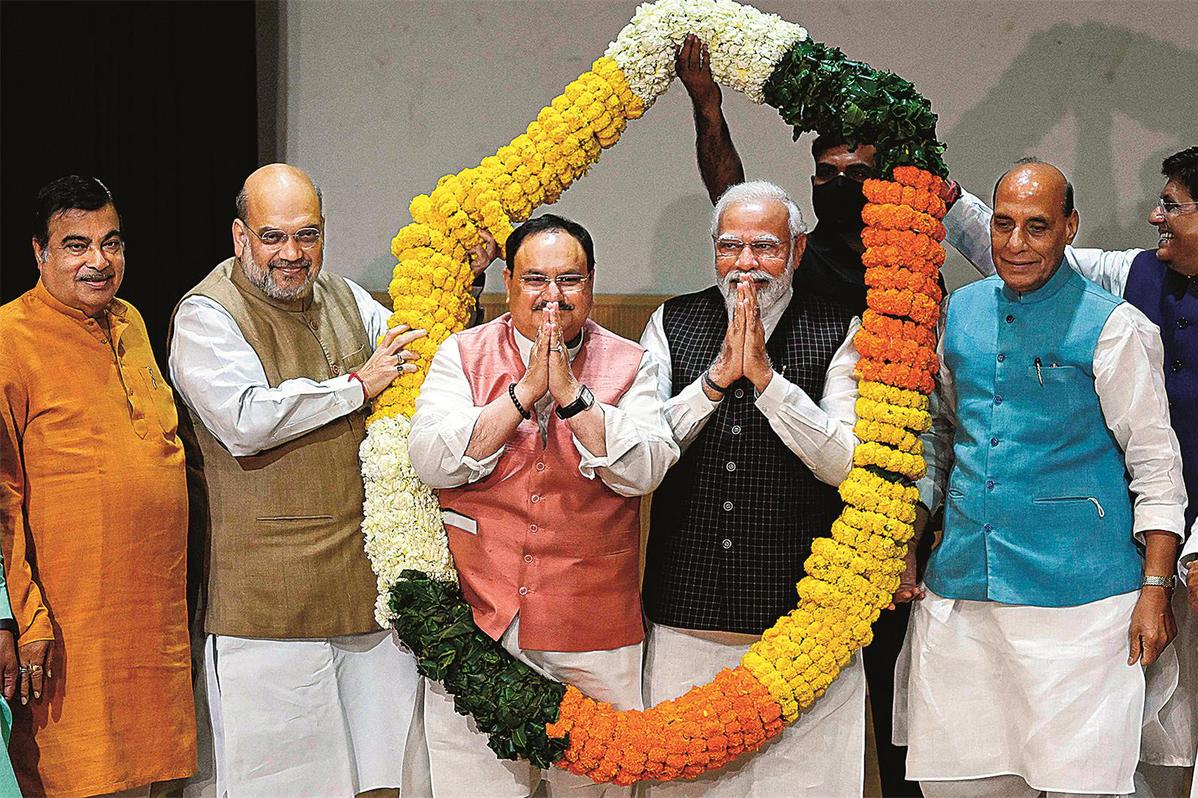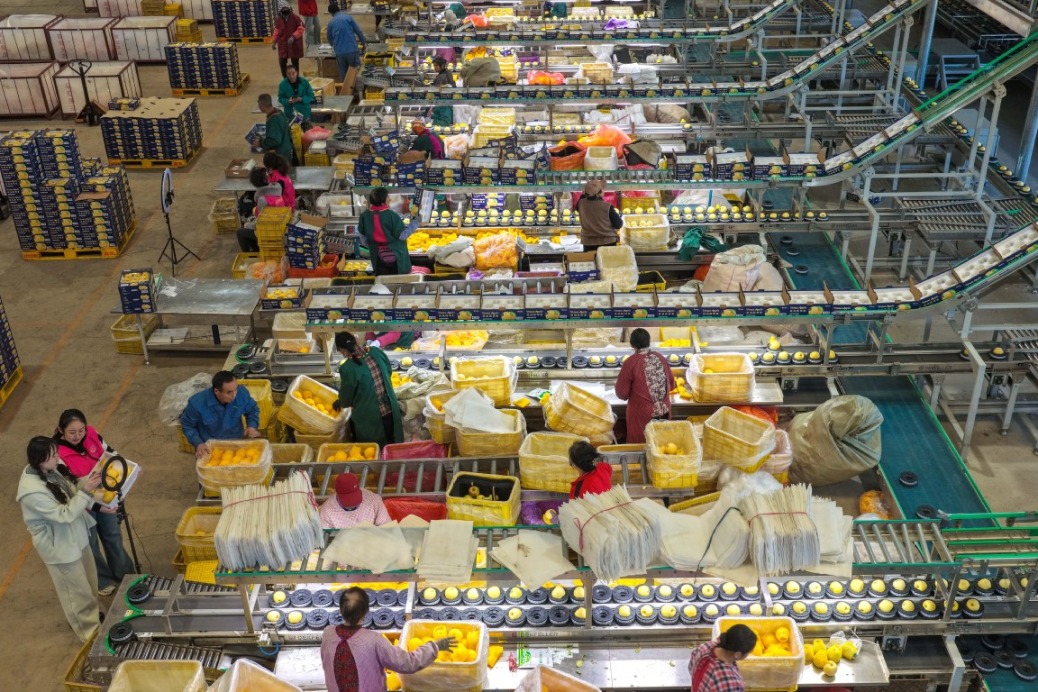Modi's party buoyed for next contest
By APARAJIT CHAKRABORTY in New Delhi and ARUNAVA DAS in Kolkata | CHINA DAILY | Updated: 2022-03-17 07:31

BJP gets tail wind for Indian election after wins in state polls, experts say
Indian Prime Minister Narendra Modi's Bharatiya Janata Party has underscored its political dominance with wins in four state elections that observers say will dent the hopes of the party's rivals in the national election due in 2024.
The results of the state polls announced late last week showed that the BJP won a second consecutive term in the country's most populous state, Uttar Pradesh, and in Uttarakhand and Manipur. The party is set to form a government in Goa with support from independents. The Aam Aadmi Party, which governs Delhi, won by a big margin in Punjab, where the once-dominant Congress party held power.
Victory in the four states puts the BJP in a strong position ahead of the national elections and dampens the spirits of opposition parties, said Sanjay Rao Ayde, head of the political science department of St. Stephen's College in New Delhi.
For the state polls, the BJP was helped by a combination of Hindu nationalism and delivery of Modi's pro-poor welfare schemes-and his charisma. The federal government distributed free food to poor communities during the COVID-19 pandemic and ensured free COVID-19 vaccines for certain groups.
Victory in Uttar Pradesh, home to about 240 million people and 130 million voters, is the single biggest political prize for any political party in India, political analysts said.
The BJP became the first party to retain power in the state in three decades. Many voters felt law and order had improved over the past five years, and saw fit to reward the BJP in the polling booths.
"Uttar Pradesh serves as an electoral barometer in the larger context," said Shyamalendu Majumdar, a political scientist in Kolkata. "The party which has maximum sway among the electorate in this state is seen as the ruler of India. In the 542-member House, Uttar Pradesh alone has 80 seats."
Surajit C Mukhopadhyay, who teaches sociology at Amity University Chhattisgarh, said that "by dint of its size and population, Uttar Pradesh can influence Indian polity in a manner that few other states can do".
Uttar Pradesh lies at the center of the BJP's experiment of a Hindu rashtra-a Hindu theological nation-in place of a secular republic, he said, noting that it is the state where a centuries-old mosque, popularly called Babri Masjid, was destroyed by Hindu zealots in 1992.
Not only did the mosque's demolition serve as a turning point in Indian politics and society but it also provided lessons that can't be forgotten, Mukhopadhyay said. "It stood for a larger political assertion that India is a land of Hindus. What we are witnessing now, especially in the context of the triumph of the right-wing party in Uttar Pradesh, is a logical extension of those symbolic events," he said.
'Political trailer'
The Uttar Pradesh victory is seen as a political trailer for the 2024 national parliamentary in which the state will again play a crucial role.
Mukhopadhyay said it seems the BJP cannot be stopped, and this means that India's secular constitution could "be in jeopardy", adding that the worries of state's Muslims "are bound to deepen". They make up around 20 percent of the population.
By ensuring victory in Uttar Pradesh, the BJP further consolidates the rise of Yogi Adityanath, who has been the state's chief minister for five years. He has proved himself as a powerful leader. Also rising is the Aam Aadmi Party's chief minister for Delhi, Arvind Kejriwal, who by securing victory in Punjab has positioned himself as a prospective national leader.
The state election results also highlight the decline of the Indian National Congress party, which held power for most of India's history. The party won just two seats in Uttar Pradesh. In all states except Uttarakhand, its vote share and number of seats were reduced significantly.
Aparajit Chakraborty and Arunava Das are freelance journalists for China Daily.
























